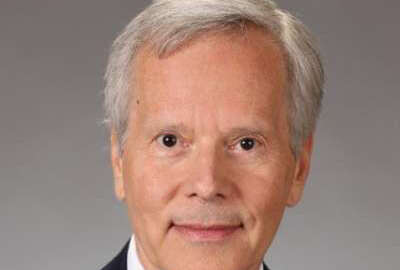AbilityOne seeks to end minimum wage exception for disabled workers at nonprofit contractors
Nonprofit contractors employing people with disabilities through the AbilityOne program have not been bound to pay minimum wages, with many employees consistent...
Best listening experience is on Chrome, Firefox or Safari. Subscribe to Federal Drive’s daily audio interviews on Apple Podcasts or PodcastOne.
The AbilityOne program has long connected federal contracting requirements to people with disabilities. Nonprofit contractors employing these folks have not been bound to pay minimum wages. Many employees have in fact consistently received sub-minimum wages for helping produce everything from office furniture to airplane engine parts. Now AbilityOne has proposed a rule to end sub-minimum wages for AbilityOne suppliers who want to keep their federal contracts. For one reaction, the President and CEO of Melwood Larysa Kautz spoke to Federal Drive with Tom Temin.
Interview transcript:
Tom Temin: Ms. Kautz, good to have you on.
Larysa Kautz: Thanks, Tom. Really great to be on.
Tom Temin: And just tell us, I think everyone knows from radio advertising on our station and on our sister station WTOP, that Melwood is looking for vehicles, but tell us more about the company and what it is you produce and sell to the government.
Larysa Kautz: Absolutely. Yes, our marketing and communications team are quite good at branding the fact that we do take car donations. So Melwood is a nonprofit corporation. We were founded in 1963, basically on a plot of unimproved lands that was donated by the federal government across from Andrews Air Force Base in Upper Marlboro, Maryland. And it was donated to a group of parents who were determined to teach skills to their young children with disabilities, young adults with disabilities, who were considered untrainable and unemployable at that time. And I can tell you in the past 60 years, we’ve gotten a lot better, we’ve made progress, but it is an opinion that does still pervade our communities that people with disabilities are less than, and they don’t quite have the abilities to be able to do jobs.
Tom Temin: Well, how many people do you employ, and what do they produce?
Larysa Kautz: We have 1,600 employees across the DMV, the Washington DC area, and also Virginia and Maryland. And we do a slew of different services for the federal government at 60 plus different federal contract sites. We do facility maintenance, which includes HVAC, electrical, we do cleaning, we do snow removal, recycling, administrative tech support, so quite a few services. And nearly 1,000 of those individuals that we employ have significant disabilities.
Tom Temin: Got it. And what is the pay situation for Melwood? Do you pay, in fact, minimum wage or what’s your profile like there?
Larysa Kautz: So I’ll tell you that 10 years ago we were taking advantage of the sub minimum wage rules, which allow you to apply for a certificate, which in essence gives you the right to do productivity trials and make your employees with disabilities do time trials several times a year, and then comparing their skills to quote typical workers. And of course, you and I know that there’s no such thing as a typical. And I wouldn’t want someone timing me to see how productive I am most days. But in essence, we did that for a long time, much like hundreds of other nonprofits across the nation. And my predecessor, Carii DeSantis, when she came to Melwood as the president and CEO, and she found out for the first time that you could in fact pay people with disabilities sub minimum wages, she was horrified and immediately had a conversation with our board. And we voluntarily relinquished our certificate, did a full kind of economic feasibility study to see how much it would cost to bring everyone that we employ up to first the minimum wage, and then to a prevailing wage. So we are proud to pay prevailing wages, living wages to all of our employees. It was a little bit of a struggle, but we’re lucky, much like you mentioned about the vehicle donations, we do have a robust philanthropic arm, and we do a lot of fundraising. So we were able to do it without laying anybody off, without cutting anybody’s hours, and to retain our workforce.
Tom Temin: In other words, the compensation from federal contracts then doesn’t really cover your costs?
Larysa Kautz: It doesn’t a lot of the times, particularly since we offer very robust vocational support and coaching services to our employees. We spend about a million dollars a year out of the margin of our contracts and out of the fund development that we do to ensure that each of our employees with disabilities can be successful. And not just at the job that they’re doing. But make it into a career, make sure that they can advance, they can be promoted. And that doesn’t include educating our supervisors and managers who might know how to clean buildings but have not worked with people with disabilities in the past.
Tom Temin: We’re speaking with Larysa Kautz, she is President and CEO of Melwood. And when industry talks about sub minimum wages, how sub minimum are they on average?
Larysa Kautz: They can go down to pennies on the dollar.
Tom Temin: So dollar, two dollars an hour?
Larysa Kautz: Absolutely.
Tom Temin: Wow.
Larysa Kautz: From our perspective, from Melwood’s perspective, it’s a civil rights issue, it’s an equity issue. As a society, we have deemed that a person’s time, one hour of your time is worth at least a minimum amount. And in essence, by allowing the sub minimum wage payments, you’re saying that people with disabilities don’t have to meet that same civil rights criteria and that you can pay them less than what you would pay any other human doing that work as an employer.
Tom Temin: So fair to say you’ll be weighing in on the positive side of this proposed rule?
Larysa Kautz: Absolutely. Absolutely. I think it’s been a long time coming. There are many states that have done away with sub minimum wages, but there’s still quite a few that allow it. We advocated in Maryland in Annapolis to get rid of some minimum wage in Maryland, which was phased out, which we’re excited about. I’m still working on Virginia in Richmond, we’re not quite there yet. There are folks working on that at the federal level, there’s legislation pending to give grants to states to help nonprofits move away from sub minimum wage.
Tom Temin: And with the fundraising and the other sources of revenue that is available to presumably all of the nonprofits in the AbilityOne system then, would you say then that it should come to pass that everyone must pay minimum wages, then nobody’s competitive posture would be affected, vis-à-vis selling to the government and bidding on contracts?
Larysa Kautz: Well, so it gets a little bit interesting when you’re talking about the AbilityOne program. As you mentioned, it’s the federal procurement program where agencies buy services and goods from 500+ nonprofits like Melwood across the country. And there’s this constant dynamic between the jobs portion of the program, which is creating expanding opportunities for people with disabilities to get jobs. And there is a lot of price pushing from the federal agencies, obviously wanting those services at the lowest price that they can possibly get them. And as we talked about bringing individuals up to prevailing wages, there’s that push and pull of making sure that we’re employing the most significantly disabled individuals who are not being employed by the private sector right now, but keeping our costs as low as possible, keeping our productivity as high as possible. So it takes creativity, it takes innovation, it takes putting each person in the right job for their skills and their interests. And it means thinking about what does employment mean? What does it mean to have a 9 to 5 job? And are some people with disabilities more cut out for the gig economy? Can we find entrepreneurship opportunities? It means looking at what a job means and what an employee means to get there. But there is concern by a lot of folks that people will be left behind, and they will just be unemployed.
Tom Temin: Although on the other hand, if say, a AbilityOne contractor is making piston rings for airplane engines or that kind of thing, it’s hard to believe that even with minimum wages, they would not be competitive with a unionized aerospace machinist shop, which has paid way above minimum wage wages.
Larysa Kautz: Yeah. And since you mentioned unions, that does bring up another topic that’s key and controversial to the AbilityOne program, which is the NLRB, the National Labor Relations Board, for a long time has said that employees under the AbilityOne program with disabilities are not truly quote employees, that they’re being rehabilitated or they’re being trained, and so there is this push to not allow them to join unions and to unionize. Which I’ll tell you Melwood is on the progressive side of that as well. And we have unionized sites that include both people with and without disabilities. And we’ve been very successful with that. So there is a lot of movement going forward.
Tom Temin: And these are independent unions o they AFL-CIO affiliates?
Larysa Kautz: We have SEIU, we have LIUNA, we have Teamsters, a drivers union, we also have an electricians and machinists union. So there’s quite a few that we work with based on the type of services we provide.
Tom Temin: Well, if you can work with the Teamsters and the SEIU, you must be one tough lady.
Larysa Kautz: Right? We actually have a great relationship with SEIU and with LIUNA. And I’m hoping that we can have them come on board as advocates for the AbilityOne program to really start moving it forward. Because they’re good jobs, they’re such good jobs. And right now, the incumbent in essence is guaranteed to stay on a contract for a long term. The statute was created in a way to have stability for jobs with people with disabilities, so that their vocational support is not changing every five years because you have to do a recompetition. So they’re stable jobs, they’re good jobs, and I think the unions are happy with it.
Tom Temin: Lots to think about. Larysa Kautz is the president and CEO of Melwood. Thanks so much for joining me.
Larysa Kautz: Thank you so much, Tom. It’s an important topic.
Copyright © 2024 Federal News Network. All rights reserved. This website is not intended for users located within the European Economic Area.
Tom Temin is host of the Federal Drive and has been providing insight on federal technology and management issues for more than 30 years.
Follow @tteminWFED
Related Stories






